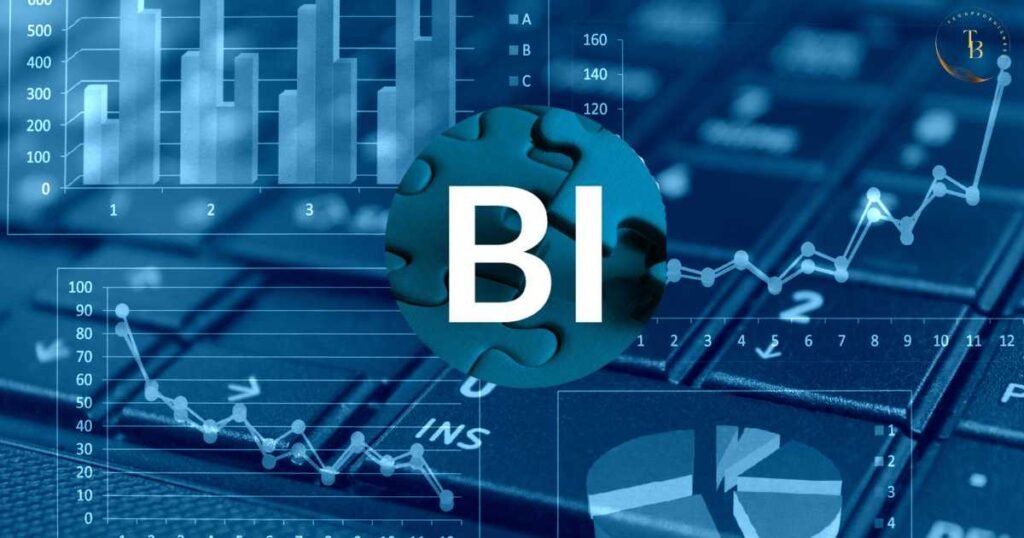Utility companies face unparalleled challenges and chances from managing complex infrastructure to meeting increasing customer demands.
Staying ahead in the utilities sector requires strategic insights and data-driven decision-making. This is where Utilities Business Intelligence (UBI) steps in, revolutionizing how utility companies operate and thrive in a competitive market.
Understanding Utilities Business Intelligence
What is Utilities Business Intelligence?
Utilities Business Intelligence (UBI) refers to the use of advanced analytics. And data visualization tools to gather, analyze, and interpret data within the utilities sector. It empowers organizations to extract actionable insights from vast amounts of data generated by meters, sensors, customer interactions, and operational processes.
Key Features and Benefits
- Data Integration: UBI consolidates data from disparate sources. Including billing systems, metering devices, CRM platforms, and IoT sensors, providing a unified view of operations.
- Predictive Analytics: By leveraging historical data and predictive modeling algorithms. UBI helps forecast demand, optimize resource allocation, and anticipate maintenance needs, minimizing downtime and maximizing efficiency.
- Real-time Monitoring: With real-time dashboards and alerts, UBI enables instant visibility into key performance metrics. Empowering decision-makers to respond swiftly to anomalies and emerging trends.
- Customer Insights: UBI analyzes customer behavior, preferences, and feedback to tailor services, enhance customer satisfaction, and drive loyalty.
- Regulatory Compliance: UBI facilitates compliance with regulatory requirements. Such as reporting emissions, managing energy consumption, and ensuring data security, reducing the risk of fines and penalties.
The Impact of Utilities Business Intelligence

Enhancing Operational Efficiency
UBI streamlines workflows optimizes asset utilization, and identifies operational bottlenecks, leading to cost savings and improved resource allocation. By identifying areas for process optimization and automation, utility companies can reduce operational expenses while enhancing service quality.
Driving Strategic Decision-Making
By providing actionable insights and scenario modeling capabilities. UBI empowers executives to make informed decisions that drive long-term growth and sustainability. Whether expanding infrastructure.
Utilities companies can align their strategies with market dynamics. Customer needs by investing in renewable energy or optimizing distribution networks.
Improving Customer Experience

UBI enables utilities companies to deliver personalized services, proactively address customer inquiries, and anticipate evolving needs. By analyzing customer feedback and sentiment, companies can tailor marketing campaigns. Develop targeted promotions, and enhance overall satisfaction, fostering customer loyalty and advocacy.
Fostering Innovation and Adaptability
In a rapidly evolving industry landscape, UBI enables utilities companies to stay agile and responsive to market changes and regulatory requirements, by attaching the power of data analytics and engine learning.
Companies can identify emerging trends, anticipate disruptions, and innovate new products and services, positioning themselves as industry leaders.
Overcoming Challenges and Driving Adoption
Despite its transformative potential, implementing Utilities Business Intelligence can pose challenges, including data silos, legacy systems, and organizational resistance to change.
However, by fostering a culture of data-driven decision-making, investing in training and infrastructure, and partnering with experienced vendors, utilities companies can overcome these obstacles and realize the full benefits of UBI.
Leveraging Data for Operational Excellence

Streamlining Asset Management
Utilities companies manage vast networks of infrastructure, including power plants, substations, pipelines, and distribution grids. Optimizing asset management is crucial for ensuring reliability, minimizing downtime, and extending asset lifespan.
Utilities Business Intelligence enables organizations to track asset performance, predict maintenance needs, and prioritize investments based on risk and return on investment (ROI).
By leveraging historical maintenance data, sensor readings, and predictive analytics, utilities companies can implement proactive maintenance strategies, reducing costs and enhancing asset reliability.
Enhancing Grid Stability and Resilience
The power grid is the backbone of modern society, delivering electricity to homes, businesses, and critical infrastructure. Maintaining grid stability and resilience is paramount for ensuring uninterrupted service and mitigating the impact of outages.
Utilities Business Intelligence provides real-time monitoring of grid performance, analyzes network congestion, and predicts potential failures. By identifying vulnerabilities and optimizing grid operations, utilities companies can enhance reliability, reduce outage durations, and improve customer satisfaction.
Optimizing Energy Distribution

Opposite supply and demand is a constant challenge for utilities companies, particularly in regions with fluctuating energy consumption patterns. Utilities Business Intelligence helps optimize energy distribution by forecasting demand, identifying peak usage periods, and optimizing generation and distribution schedules.
By leveraging demand response programs, dynamic pricing models, and grid automation technologies, utilities companies can reduce energy waste, lower operational costs, and improve energy efficiency.
Driving Innovation and Sustainability
Embracing Renewable Energy Sources
The transition to renewable energy sources, such as solar, wind, and hydroelectric power, is reshaping the utilities landscape. Utilities Business Intelligence enables organizations to integrate renewable energy sources into their portfolios, optimize generation schedules.
And balance renewable generation with conventional sources. By analyzing weather patterns, solar irradiance, and wind speeds, utilities companies can maximize renewable energy production, reduce carbon emissions, and meet sustainability goals.
Empowering Smart Grid Initiatives
Smart grid technologies, including smart meters, advanced sensors, and IOT devices, are revolutionizing the way electricity is generated, transmitted, and consumed. Utilities Business Intelligence provides the analytical framework for managing smart grid data, optimizing grid operations, and enabling demand-side management programs.
By analyzing real-time consumption data, identifying energy-saving opportunities, and engaging customers in energy conservation efforts, utilities companies can enhance grid efficiency, reduce peak demand, and empower consumers to make informed choices about their energy usage.
Addressing Regulatory Compliance and Customer Expectations

Ensuring Data Security and Privacy
With the proliferation of data-driven technologies. Utilities companies must prioritize data security and privacy to protect sensitive information and maintain regulatory compliance.
Utilities Business Intelligence helps safeguard customer data, monitor access controls. Encrypt sensitive information to prevent unauthorized access and data breaches.
By implementing robust cybersecurity measures and complying with industry regulations. Utilities companies can build trust with customers and regulators while mitigating legal and financial risks.
Enhancing Customer Engagement and Satisfaction
In an era of increasing competition and customer empowerment, utilities companies must prioritize customer engagement and satisfaction to retain loyalty and drive revenue growth.
Utilities Business Intelligence enables organizations to analyze customer feedback, preferences, and behavior, personalize communications, and deliver value-added services.
By leveraging customer segmentation, targeted marketing campaigns, and proactive communication channels, utilities companies can enhance customer experience, build brand loyalty, and differentiate themselves in the market.
Overcoming Challenges and Driving Adoption

While the benefits of Utilities Business Intelligence are clear, implementing and adopting UBI solutions can pose challenges for utilities companies. These challenges include legacy systems, data silos, organizational resistance to change, and limited expertise in data analytics.
However, by investing in employee training, fostering a culture of data-driven decision-making, and partnering with experienced vendors, utilities companies can overcome these obstacles and unlock the full potential of Utilities Business Intelligence.
Conclusion
Utilities Business Intelligence represents a paradigm shift in how utilities companies operate, compete, and innovate in today’s dynamic market. By harnessing the power of data analytics, predictive modeling, and real-time insights.
Utilities companies can enhance operational efficiency, drive strategic decision-making, improve customer experience. Foster innovation, ultimately positioning themselves for long-term success in an increasingly competitive landscape.






